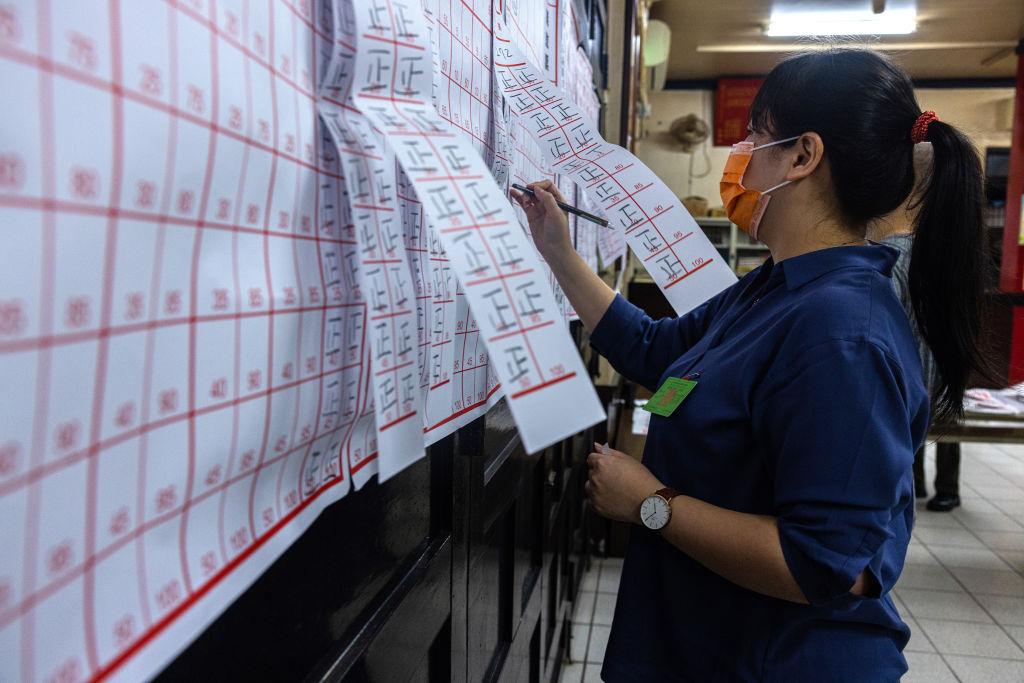
In Taiwan, the main opposition party, the Kuomintang (KMT), has announced that Hou You-yi is its candidate for the 2024 presidential election. The decision comes after a very public campaign for the candidacy by Terry Guo, the billionaire founder and chairman of the Foxconn electronics manufacturing group. The KMT declined to hold a vote of its membership and instead party chairman Chu Li-lun chose the party’s candidate directly.
Hou You-yi is mayor of New Taipei City (known as Taipei County until it was upgraded to city status in 2010). Before that, Hou had a long and storied career as a police officer, rising to head Taiwan’s Criminal Investigation Bureau in 2003.
He was involved in the attempt to arrest democracy activist Deng Nan-jung in 1989 at the offices of the dissident magazine Freedom Era Weekly, and several months later Deng self-immolated to protest authoritarianism in Taiwan. Hou was also placed in command of the investigation into the attempted assassination of former president Chen Shui-bian during the 2004 presidential election.
Hou’s rival is Lai Ching-te from the incumbent Democratic Progressive Party (DPP). Lai is currently vice president of Taiwan and unsuccessfully challenged President Tsai Ing-wen in a DPP presidential primary in 2019. Tsai went on to score a crushing win against the KMT in the 2020 election. However, Tsai can’t run for a third term, and Lai faced no challengers in the DPP for 2024.
Lai has a background in public health and a master’s from Harvard University. He began his political career as a legislator in the 1990s before serving as a very popular mayor of Tainan, a DPP stronghold, in the 2010s. He joined the Tsai government as premier in 2017.
The third candidate in the election is the former mayor of Taipei, Ko Wen-je. Ko has a celebrated medical background in critical and emergency care and transplant surgery. He was first elected mayor in 2014, against the KMT and other independents, and re-elected in 2018.
In 2019, Ko founded his own political party, the Taiwan People’s Party (TPP), which shares its name but not its politics with the party founded in 1927 by Chiang Wei-shui, Cai Pei-huo and other leading figures of the time. In a very divisive political landscape, the TPP aims to occupy the centre ground with an emphasis on non-partisan governance, but Ko is also known for his public gaffes and political naivety.
Polling has Hou and Lai in a close race with around 30% support each, with Lai generally a few points ahead. Ko sits in third at around 20%. These numbers are hardly predictive this far out from the vote in January, but with each party having chosen its candidate, onlookers can expect a very different presidential campaign and a shift in tone in Taiwan’s politics.
As the DPP candidate, Lai has emphasised continuity with Tsai, but he is still a very different style of politician. Tsai casts herself as disciplined, resolute and technocratic, even somewhat above the fray. Lai, although he couldn’t be called a populist, has built a more hands-on career through local politics in the south.
The KMT’s Hou offers his no-nonsense and pragmatic style to a party that wrestles with its authoritarian legacy and its close links with Taiwan’s business interests. Although Hou and Lai are stridently critical of each other, they occupy some of the same space as political personas.
Ko, for his part, will take votes away from both major parties but may prove more damaging for the KMT in its traditional stronghold of Taipei.
As candidates, both Hou and Lai have given voice to issues in Taiwanese politics that are too often subsumed by cross-strait relations, especially the north–south divide and gender and class politics. But neither candidate has a straightforward story to tell on those issues yet, and that could make for a bruising campaign.
Across the strait, Beijing would be deeply unhappy with Lai as president, seeing him as more explicitly Taiwanese nationalist than Tsai, however careful he might be in the campaign. Hou has stayed in line with the KMT’s position. He has already ruled out Beijing’s formula of ‘one country, two systems’ for unification and doesn’t represent the factions of the KMT for whom Chinese identity is central to their politics.
Whether it be Lai Ching-te or Hou You-yi, understanding the next president of Taiwan will require some work from an international community that has grown comfortable with and sympathetic to Tsai. Her progressive politics are accessible and familiar to interested international observers.
Hou and Lai, however, practise a politics steeped in community life and the social divides of Taiwan. While they are each compelling, the world will require deeper familiarity with the Taiwanese story to fully understand them as politicians.
As Beijing continues its threatening military activity around Taiwan, developing that familiarity will be a good starting point for policymakers around the world as they prepare for the 2024 election outcome.

